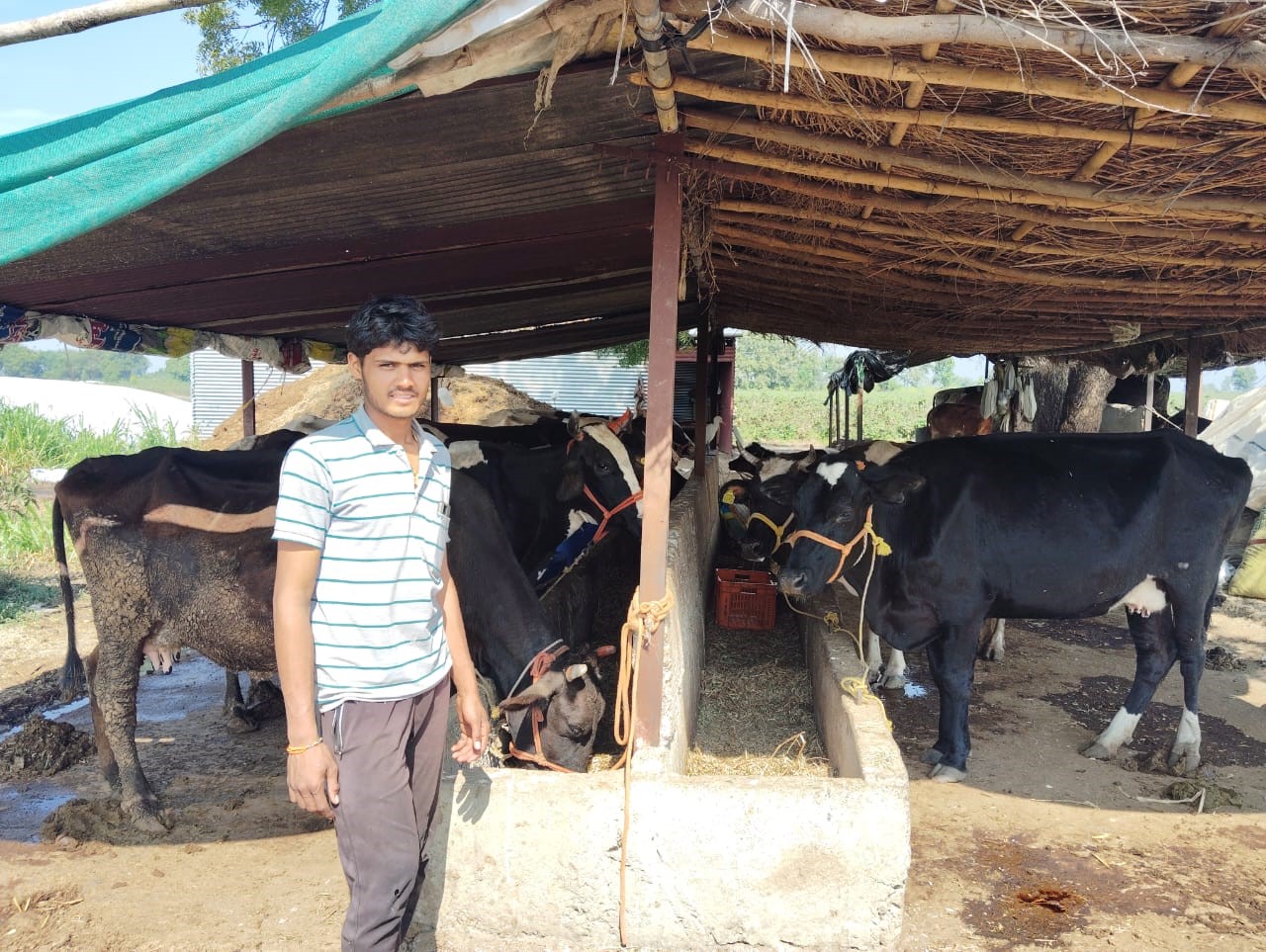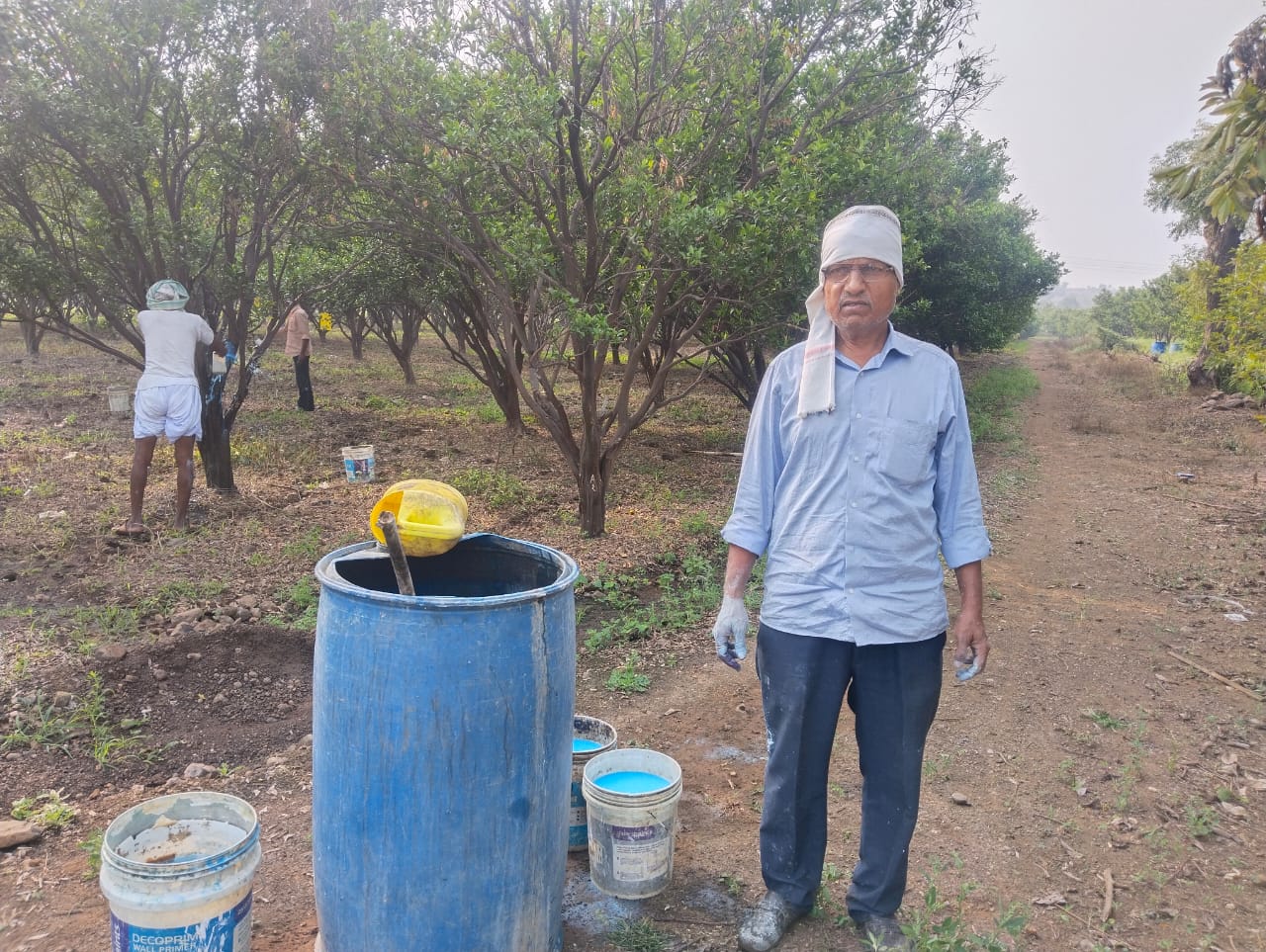Literacy is one of the best social investments, yet has often been neglected in CSR spending. The Covid crisis has greatly damaged our education system – we urgently need to build back better with innovative approaches to literacy which leave no one behind.
By Tom Delaney
When we invest our money in a bank, we are happy to receive a 5% interest rate. Buy shares, and we might be lucky to receive a 10% plus return. But for every rupee spent on literacy, society reaps a 700% return!1
Foundational literacy and numeracy is one of the best social investments. Yet, it has often been neglected in CSR, national, and international funding. The Covid crisis has greatly damaged our education system—we urgently need to build back better with innovative approaches to funding literacy which fill the learning gaps quickly.
The ability to read and write is a crucial determinant of a child’s future, in much the same way the literacy rate of a nation is a vital indicator of its prospects. Children who lack the foundational skills to read, write and do basic arithmetic, may well spend the rest of their lives in poverty. The cost of becoming literate is minimal, yet the cost of remaining illiterate is huge2.
Meanwhile, new pedagogy and technology are enabling low-cost scalable literacy programs. Improved techniques are bringing the cost of making someone literate down. We have no excuse for why hundreds of millions of fellow Indians remain unable to read and write. Just as prevention is much cheaper than cure in medicine, so too avoiding the costs of illiteracy. Investing in literacy is both a social responsibility and a smart move economically.

The costs of illiteracy are large and growing as the world becomes increasingly digitized and information-rich, leaving those who can’t access this information even further behind. Ask a person who is illiterate about their daily life and you’ll soon understand the huge inconveniences and inefficiencies they face—from not being able to read a bus sign to being unable to decipher a medicine label, from getting the wrong change to lacking the confidence to speak up.
The importance of literacy has long been neglected until recently, and indeed India has more people who are illiterate than the next remaining top 10 countries globally added together! Further, the Covid crisis has thrown education systems worldwide into disarray. According to a recent UNESCO report, 70% of 10-year-olds in low- and middle-income countries post-Covid cannot read or understand a simple text, up from 53% pre-Covid3. The scale of education loss is ‘nearly insurmountable’.
In the face of this massive challenge, we need a society-wide mobilization to ensure all children are in school and they are learning well. Governments bear the primary responsibility. However, CSR and philanthropic foundations also have a key role to play. CSR can take greater risks and invest in educational innovations and start-ups in a way that may be difficult for governments to do. Even a relatively small amount invested in the right way can catalyze a huge transformation.
Accelerating Learning for All: A disruptive new pedagogy to make India and the world literate

Accelerating Learning for All (ALfA) enables Foundational Literacy and Numeracy (FLN) to be taught in just 90 instructional days (or some 30-50 instructional hours). Contrast this with 5 years of schooling even after which half the children in Grade 5 in pre-Covid India lacked these foundational skills.
Most learners using ALfA can begin to read newspapers within 30 days starting with zero knowledge of the letters. It works through the power of a reverse methodology, peer learning, students making questions for each other, and going from known to the unknown. The short, visual modules enable children and adults alike to learn swiftly, building off existing knowledge of their environment. Pair learning enables children to learn crucial 6Cs of the 21st Century: Collaboration, Communication, Creativity, Critical Thinking, Character and Citizenship.
I can personally testify to the power of this literacy program and its Global Dream Disruptive FLN Toolkits, as I’ve used these myself to teach over 100 children and adults in the slums of Lucknow. Some were child labourers, locked out of the education system by their desperate poverty. Many others were in school, but had been unable to learn even basic literacy there. I’ve witnessed kids learning more in 5 weeks with ALfA than they have in 5 years at school.
It’s not just me who’s been won over by ALfA pedagogy embodied in the Global Dream Toolkits. These innovative literacy materials were first tried by the children of City International and City Montessori Schools, Lucknow; as part of the Each One Teach One Campaign. Between 2014 and 2019, the campaign was adopted by some 500,000 school and college students across several cities in India (working with different language versions of the Global Dream Toolkits). The student volunteers adopted a learner—a maid, a family member, a slum-dweller, a child or an adult—and taught them the foundational skills.
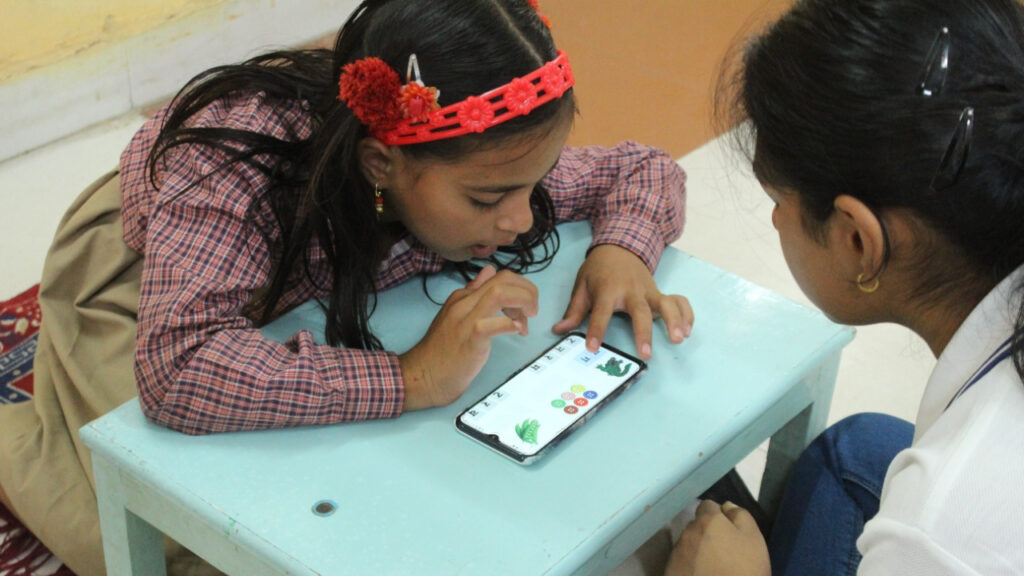
During the Covid period, we decided to develop online tools. Literacy Now app presents further new possibilities at zero cost. We are grateful for the support of SBI Foundation who helped us convert our literacy content into digital format and develop a free-to-use app, Literacy Now (learn.literacynow.app). The app was launched in May 2022 and currently has 30,000 student volunteers. The app needs further support for numeracy and other developments to make it an increasingly more powerful tool to scale-up literacy programs across India and worldwide.
Together with my colleagues and ALfA founder, Dr Sunita Gandhi, a former World Bank Economist who returned to India to help improve the quality of education—we’ve chronicled the story of this remarkable program in Disruptive Literacy: A Roadmap for Urgent Global Action (Bloomsbury, July 2022).
“Dr. Sunita Gandhi’s 30-hour literacy and numeracy model is highly innovative, and highly scalable, that can benefit school children, out of school children and illiterate adults.”
Shri Rajnath Singh, Defense Minister
Accelerating Learning for All in Schools
Most recently, DEVI Sansthan has been asked by the Ministry of Education to help improve the literacy and numeracy levels of primary grades 1 through 5 in two of the ten ‘low-performing districts (LPDs), and to showcase results by the next National Achievement Survey in March 2023. We immediately began to raise funds.
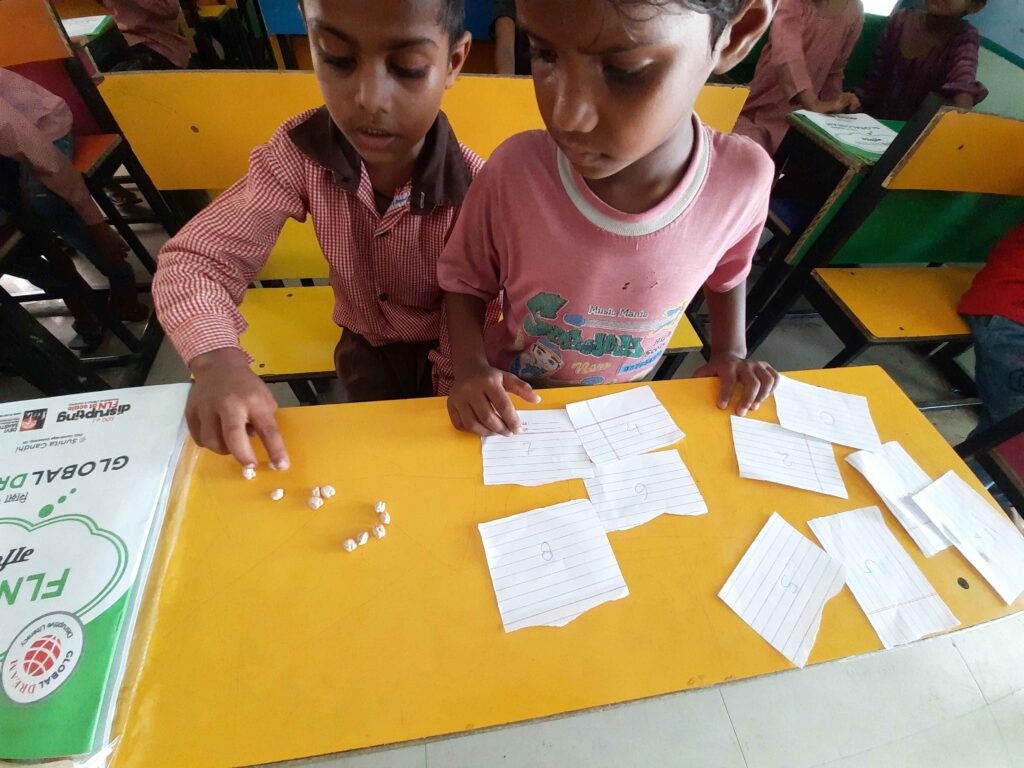
We are extremely grateful to Dr. Payal Kanodia, Trustee M3M Foundation for her quick decision to partner with us in LPD Shamli, Uttar Pradesh. This has enabled us to get started instantly, and already realize some extremely encouraging results. In merely 30 instructional days, many children of Shamli as young as Grade 1 are reading with fluency and understanding their own textbooks. Many are reading the difficult language of the newspapers. Children are understanding the numeracy concepts by using locally available materials at zero or near zero costs—exceeding class level expectations in this very short time. You may view the results on www.dignityeducation.org/links.
We are still looking for partners for the other LPD allocated to us—Sambalpur, Odisha. We know we can help turn around these low-performing districts quickly, providing we can raise the crucial funds.
Accelerating Learning for All (ALfA) programs are now available in 25 Indian and International languages with more in the replication process. This is allowing us to begin making impact worldwide. The ALfA program has been adopted for nationwide implementation in the Republic of Maldives, with the World Bank as partner. Many other international partners and countries are now in the pipeline to collaborate towards the SDG 4 of learning for all.
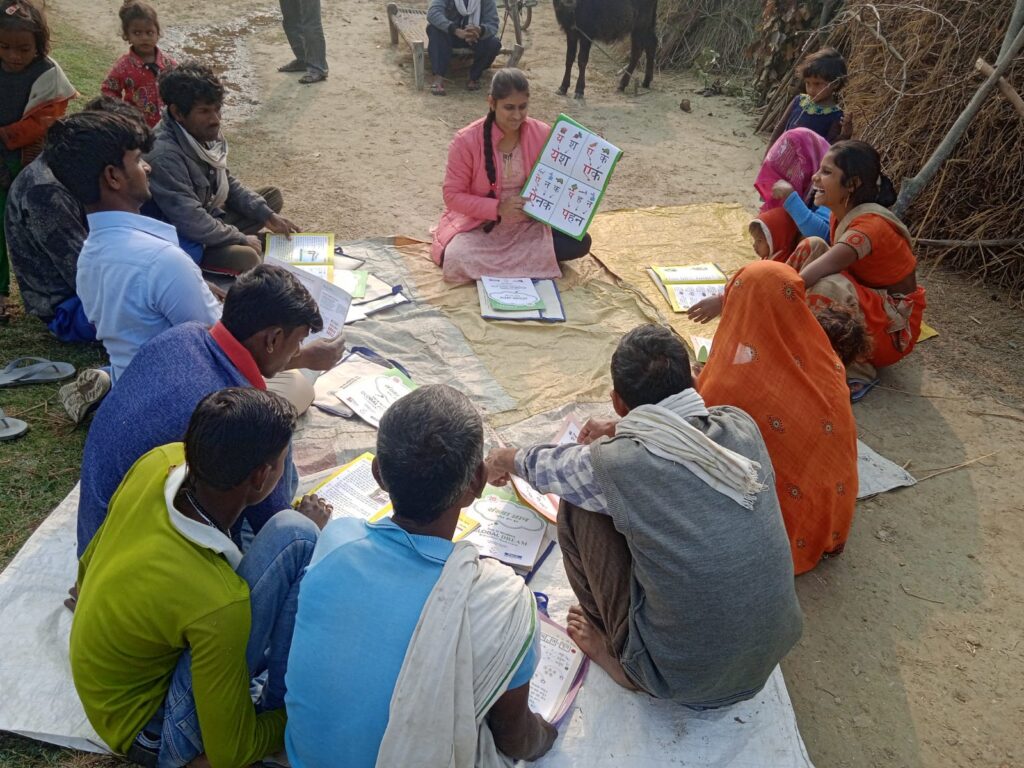
Filling the colossal gap cannot wait another year or years, or we will lose tens of millions more to illiteracy. A disruptive approach that is swift and effective, and that can be easily understood by the volunteers and teachers alike, is the need of the hour. If you would like to review the evidence for the ALfA program, or reach out to us to partner together, please visit www.dignityeducation.org/links and www.dignityeducation.org.
1Literacy Partners, New York
2Watkins, Kevin. 2021. If Education is Such a Great Investment, it Deserves Serious International Backing. The Guardian. https://bit.ly/3nUX4Xj
3UNICEF Media Factsheet. 2022. COVID:19 Scale of education loss ‘nearly insurmountable’, warns UNICEF. https://www.unicef.org/press-releases/covid19-scale-education-loss-nearly-insurmountable-warns-unicef
Tom Delaney (tom@dignityeducation.org) is an Australian citizen but has been living in India many years. He is a volunteer literacy teacher and trainer with DEVI Sansthan.






